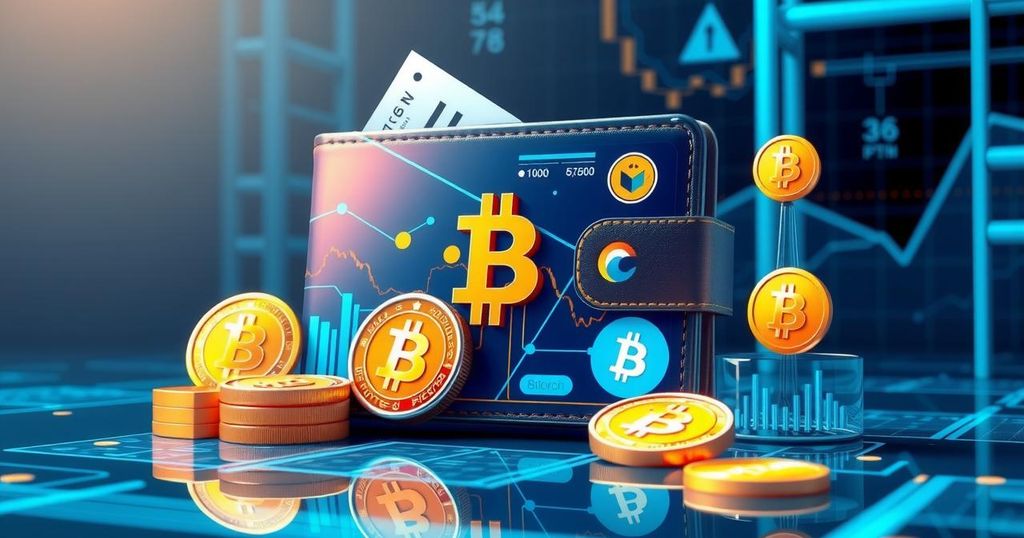How to Buy Bitcoin Safely in 2025: A Beginner’s Guide
Bitcoin’s rising value attracts new investors in 2025. This guide provides essential steps for buying Bitcoin safely, including understanding Bitcoin’s nature, choosing a reputable exchange, funding accounts, executing purchases, and ensuring security of assets. Additionally, it outlines common mistakes, tax implications, and regulatory tips for first-time buyers.
As Bitcoin approaches the staggering threshold of $100,000, an influx of newcomers into the cryptocurrency market is seeking clarity on how to dive in. Concerned with the ever-evolving landscape of apps, wallets, regulations, and the ever-present threat of scams, understanding the fundamentals has never been more crucial. This guide aims to walk first-time investors through the necessary steps to purchase Bitcoin safely in 2025.
The reasons for the increasing interest in Bitcoin are manifold. Presently, Bitcoin’s value is hovering significantly close to its all-time high of over $85,000, prompting a rush from investors. The growing acceptance of spot Bitcoin ETFs is pulling in billions of dollars from institutional investors. Furthermore, the backdrop of geopolitical tensions and rising inflation is shaping Bitcoin’s perception as a form of “digital gold.” With a heightened distrust in fiat currencies, many are turning to the decentralized finance (DeFi) sector.
So, let’s get started with the first step: it’s essential to grasp what Bitcoin actually is. As a decentralised digital currency, Bitcoin operates independently of any bank or governing body. It’s based on blockchain technology, which acts as a transparent and secure ledger maintained by either miners or stakers. However, potential buyers need to be mindful — Bitcoin can be highly volatile, isn’t insured in the way traditional deposits are, requires robust storage practices, and in the U.S., it might be subject to taxation as an investment.
Now that you have a foundational understanding, let’s talk about choosing an exchange. In 2025, several exchanges are recommended for U.S. users. It’s crucial to select a reputable one. A quick tip: always activate two-factor authentication and avoid keeping large sums of Bitcoin on these platforms for security reasons.
The next step involves funding your account. Most exchanges offer multiple deposit methods such as debit cards, ACH bank transfers, wire transfers, and payment services like Apple Pay or Google Pay. Credit card purchases have become less common in 2025 due to heightened risks of fraud and the possibility of chargebacks.
After you successfully fund your account, making your first Bitcoin purchase is straightforward. Simply log into your exchange account, navigate to the “Buy/Sell” or “Trade” section, select Bitcoin, input your desired dollar amount (it’s possible to purchase fractions), and confirm the transaction. It’s important to note that transactions may take a few minutes to fully confirm on the blockchain.
Once you acquire Bitcoin, securing it is paramount. You can choose from hot wallets — which are internet-connected and offer convenience, like Coinbase Wallet and Exodus, or cold wallets, which provide offline storage ideal for long-term investments, options include Ledger Nano X and Trezor Model T. For anyone investing significant amounts, a cold wallet is highly recommended to maximise security.
While the path to buying Bitcoin might seem clear, there are pitfalls to avoid. Don’t get swept up in buying during hype without proper research. Avoid storing your crypto on exchanges, watch out for scams that seem too good to be true, and always double-check wallet addresses to prevent sending Bitcoin to unintended places. Strong passwords and secure backup keys are must-haves.
Finally, regarding tax and regulations in 2025, it’s noteworthy that the IRS treats Bitcoin as property. This means any gains could be taxable, and you need to report any capital gains using Form 8949 when trading or selling. The U.S. Treasury is also tightening regulations, enhancing wallet tracking and broker reporting. A pro tip for staying on top of your finances is to consider using crypto tax software like CoinLedger or Koinly for compliance purposes.
In conclusion, purchasing Bitcoin in 2025 has become much easier than before, but it doesn’t come without risks. Be diligent in your research, stick to credible platforms, and prioritise the safe storage of your Bitcoin. As digital assets inch closer to mainstream acceptance, entering this space now may turn out as one of your wisest financial decisions yet.




Post Comment